Total Intake 60
Today, the term ‘Information Technology’ has grown to encompass many aspects of computing and technology. The sector has grown phenomenally in the past decade, with the advent of IT and IT services related companies providing career opportunities to millions of people around the world. It is the study, design, development, implementation, support and management of computer based information systems, particularly software applications and computer hardware. Due to increasing demand for qualified IT professionals, it has become the most preferred career option all over the world, for enterprising and growth oriented people. The course is designed to prepare engineers for IT-enabled applications and services. An engineering graduate in IT will be capable of bringing about a holistic approach to the designing, testing, and maintenance of Information systems.
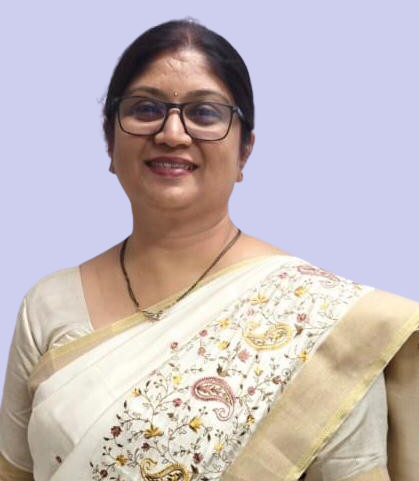
Welcome to the Department of Information Technology
Since its establishment in 2002, the Department of Information Technology at SIES Graduate School of Technology has been committed to developing technically skilled, ethically responsible, and socially conscious IT professionals. We offer an engaging academic environment that fosters innovation, research, and all-round development. Our Undergraduate Program of Computer Engineering is NBA accredited from AY 2024-27.
Our curriculum is designed to keep pace with the ever-evolving IT landscape, integrating modern technologies such as Artificial Intelligence, Machine Learning, Cloud Computing, Data Analytics, Blockchain, DevOps, Augmented Reality (AR) & Virtual Reality (VR) and the Internet of Things. The program ensures that students gain both a strong theoretical foundation and hands-on experience.
Our faculty members bring a unique blend of academic expertise and industry experience, ensuring students are prepared to meet current and future technological challenges. Experiential learning is at the core of our approach, with students participating in live projects, internships, and industry partnerships.
Beyond academics, we encourage students to engage in technical competitions, hackathons, workshops, and social impact initiatives. These activities help build leadership skills, teamwork, and a sense of community responsibility. Our accomplished alumni have gone on to excel in various sectors globally, and we continue to build strong connections with industry and academia to support the ongoing success of our students.
To develop IT professionals for accomplishment of industrial & societal needs through quality education.
| Name | Employee/ Unique ID | Date of Joining | Designation | Qualification | Status of Appointment |
| Dr. K. Lakshmisudha | 40168 | 07.07.2008 | Principal | B.E(ECE), M.E(App.Electronics), Ph.D | Full Time |
| Ms.Leena Ladge | 40110 | 11.07.2006 | Assistant Professor & I/c.HOD | B.E(ECE), M.Tech(VLSI Design & Embedded Systems), Ph.D* | Full Time |
| Dr.Divya Chirayil |
40627 | 06.01.2025 | Associate Professor | B.E (EXTC), M.E (EXTC), Ph.D (ECE) |
Full Time |
| Ms.Mrinal Khadse | 40044 | 08.07.2004 | Assistant Professor | B.E(CSE), M.E (CE), Ph.D* | Full Time |
| Ms.Savita Lohiya | 40067 | 14.06.2005 | Assistant Professor | B.E(CSE), M.E (CE) | Full Time |
| Ms.Samundiswary | 40490 | 17.08.2020 | Assistant Professor | B.E (IT), M.E (IT), Ph.D* | Full Time |
| Ms.Sampada Lovalekar | 40554 | 09.01.2023 | Assistant Professor | B.E (IT), M.Tech (IT) | Full Time |
| Ms.Kalpana Bodke | 40570 | 01.08.2023 | Assistant Professor | B.E, M.E (CE) | Full Time |
| Dr.Sulochana Sagar Madachane | 40572 | 17.08.2023 | Assistant Professor | B.E(CSE), M.E(CE), Ph.D(CSE) | Full Time |
| Ms.Kalyani Salvi | 40641 | 05.06.2025 | Assistant Professor | B.E (IT), M.E (IT) | Full Time |
| Ms.Monicka Jagtap | 15.09.2025 | Assistant Professor | B.E.(EXTC), M.E.(IT) | Full Time |
| Name | Designation |
| Mr. Mahesh Patil | Lab Assistant |
| Mr. Mangesh Mahadev Tirlotkar | Lab Attendant |
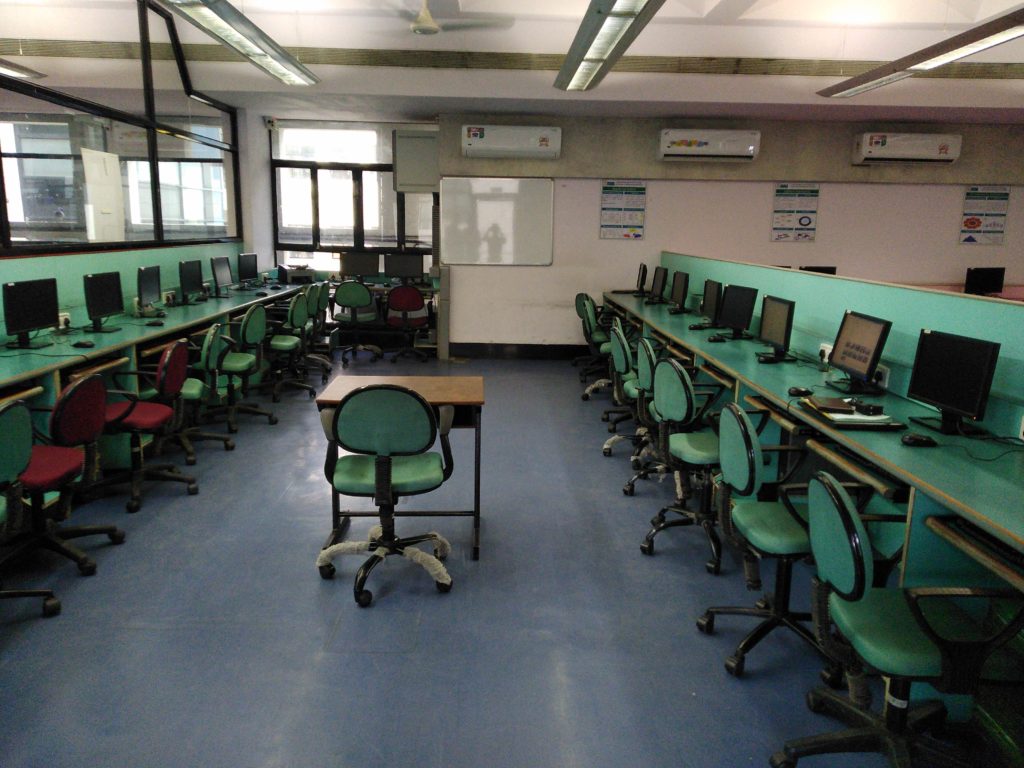 Object Oriented Programming Lab
Object Oriented Programming Lab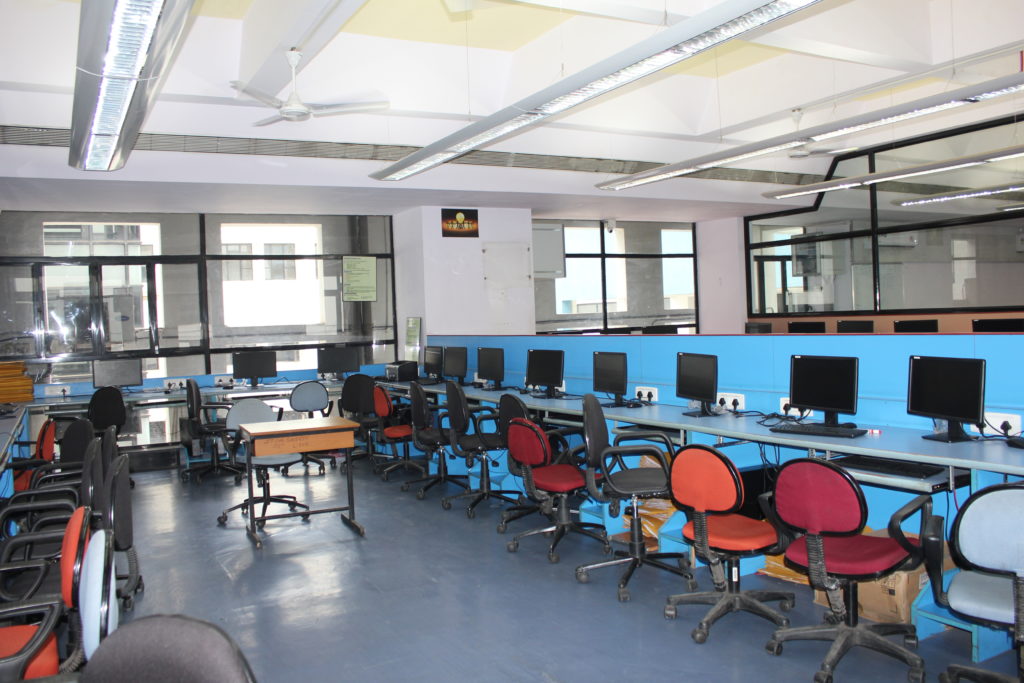 Programming Lab
Programming Lab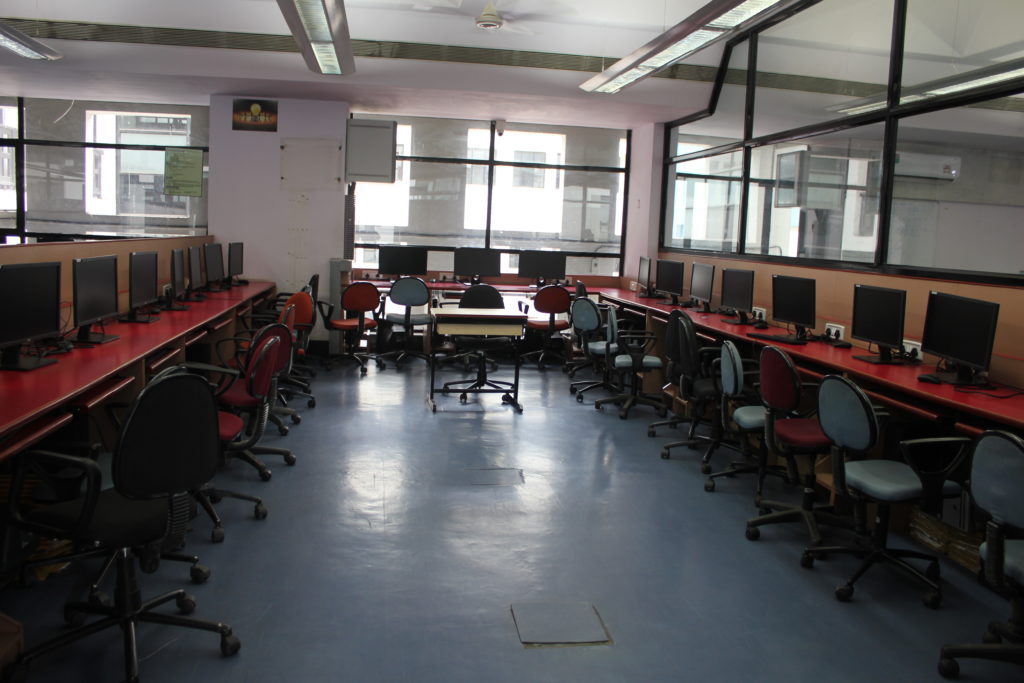 Advance Database Lab
Advance Database Lab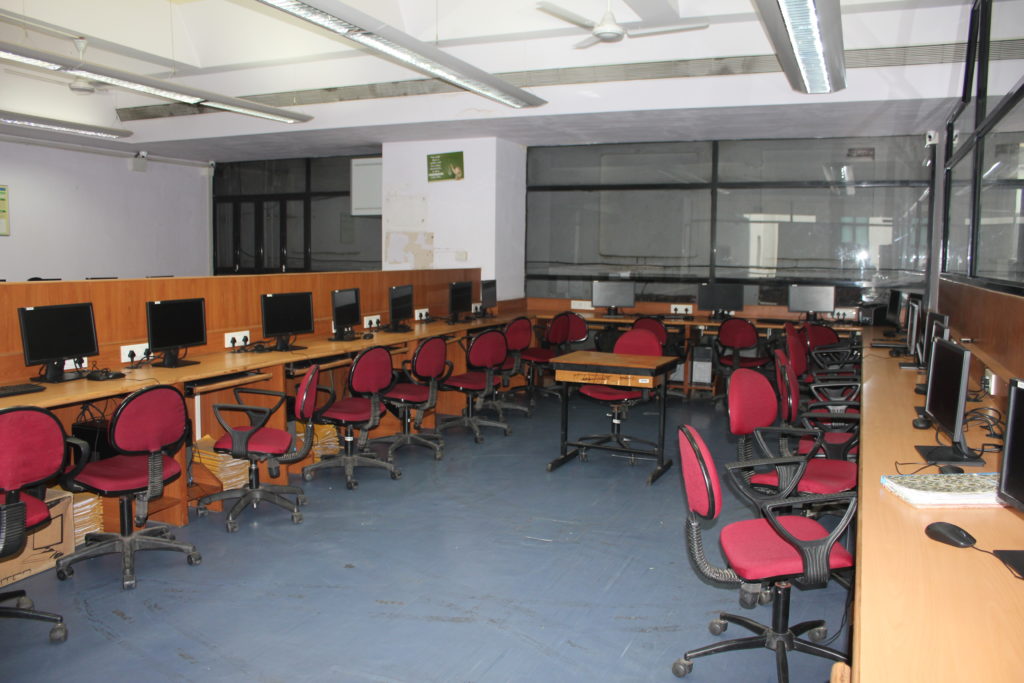 Network & Security Lab
Network & Security Lab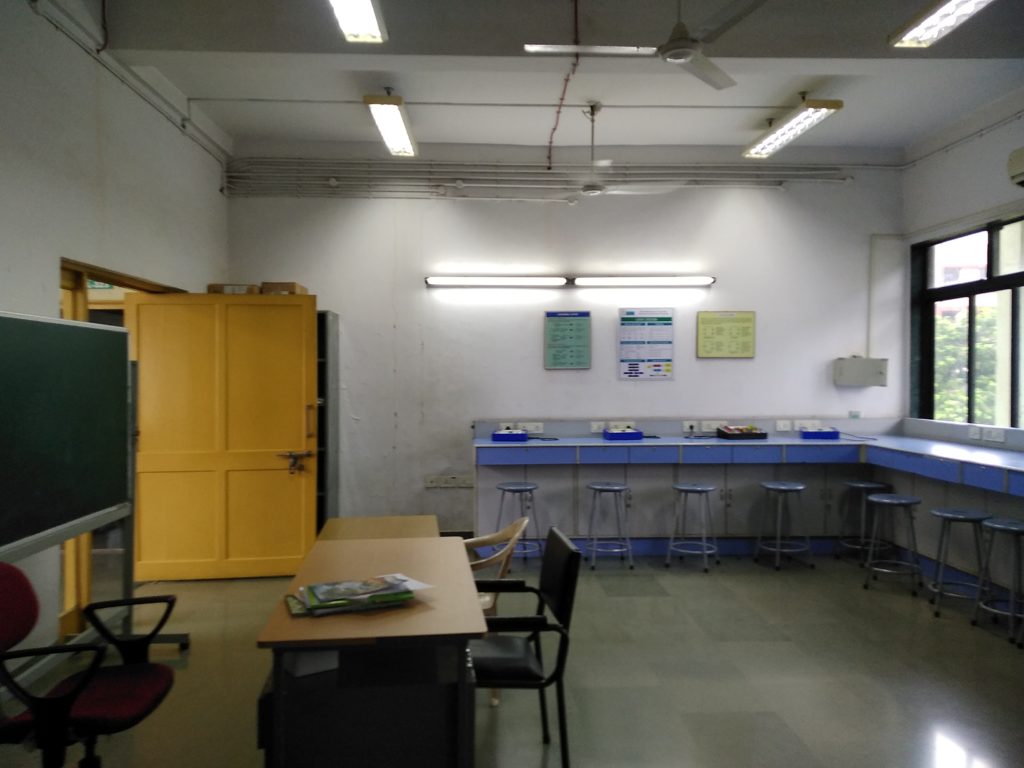 Cloud Computing Lab
Cloud Computing Lab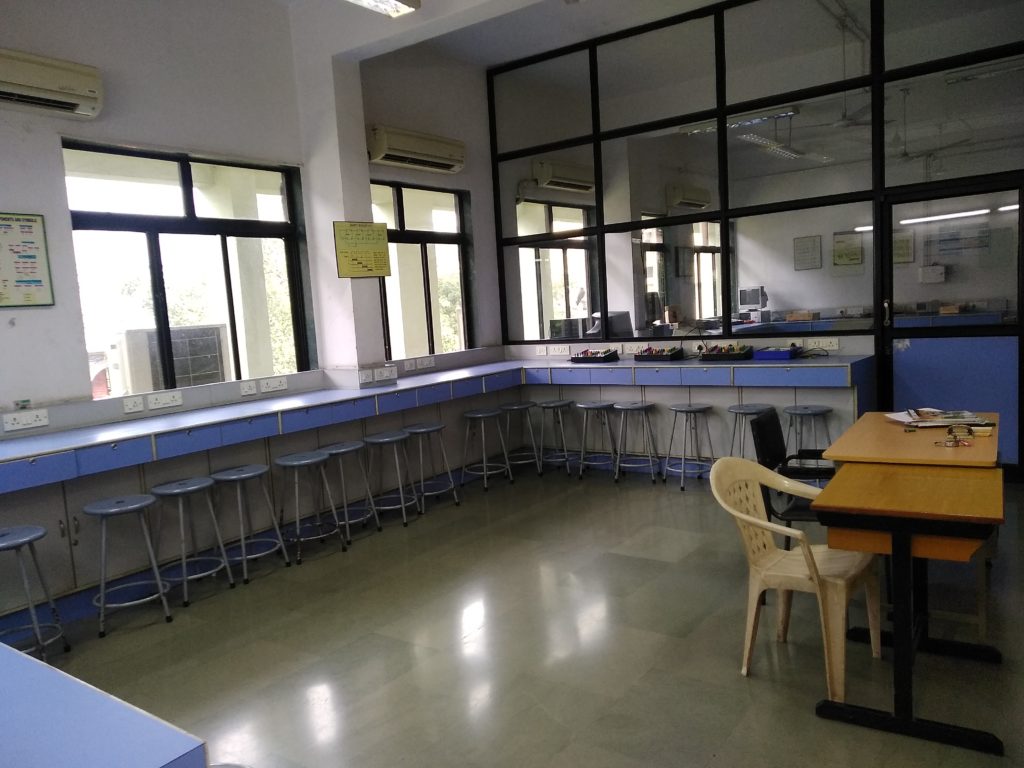 Electronics Device & Circuit Lab
Electronics Device & Circuit Lab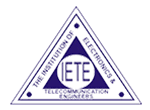
IETE (International Electronics & Telecommunications Engineering) is the most recent student body formed in SIES-GST. It plays an active role in organizing extra-curricular events in the college.
 Ask your queries
Ask your queries
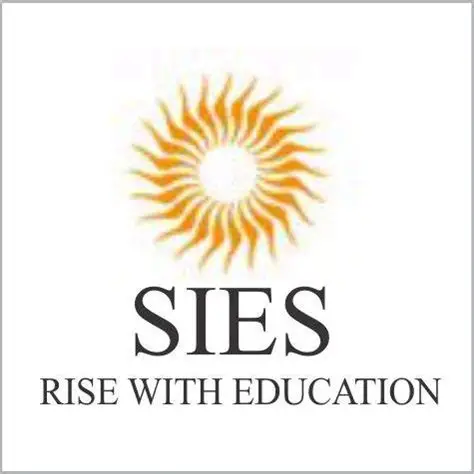 GST Chatbot
GST Chatbot